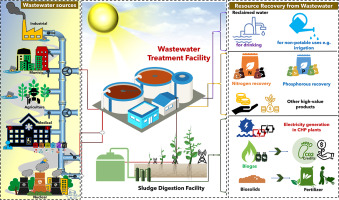Eco-Friendly Household Wastewater Solutions

Managing household wastewater in an eco-friendly manner is essential for conserving water resources, protecting the environment, and promoting sustainable living. This article explores various solutions that homeowners can implement to treat and reuse wastewater effectively.
What is Household Wastewater?
Household wastewater includes all water discharged from domestic activities such as bathing, cooking, cleaning, and laundry. It typically contains organic matter, detergents, oils, and other pollutants that can harm the environment if not treated properly.
Eco-Friendly Wastewater Treatment Methods
| Method | Description | Benefits | Considerations |
|---|---|---|---|
| Constructed Wetlands | Use of natural or engineered wetlands to filter and treat wastewater | Low energy use, natural filtration | Requires space, maintenance |
| Greywater Recycling | Reusing water from sinks, showers, and laundry for irrigation or flushing | Reduces freshwater use, cost-effective | Needs proper plumbing and treatment |
| Composting Toilets | Toilets that convert human waste into compost without water | Saves water, produces fertilizer | Requires user education, maintenance |
| Biodegradable Filters | Filters that use natural materials to break down pollutants | Environmentally safe, easy to replace | Limited lifespan, may need frequent replacement |
Benefits of Eco-Friendly Wastewater Solutions
- Water Conservation: Reduces demand on municipal water supplies.
- Environmental Protection: Minimizes pollution and protects aquatic ecosystems.
- Cost Savings: Lowers water bills and reduces the need for expensive treatment.
- Sustainability: Supports long-term resource management and reduces carbon footprint.
Practical Tips for Implementing Solutions
- Assess Your Household Needs: Understand the volume and type of wastewater generated.
- Choose Appropriate Systems: Select solutions that fit your space, budget, and lifestyle.
- Regular Maintenance: Ensure systems are functioning efficiently to prevent contamination.
- Educate Household Members: Promote responsible water use and system care.
Frequently Asked Questions (FAQ)
Q1: Can I install a greywater system myself?
A1: While some DIY kits are available, professional installation is recommended to ensure safety and compliance with local regulations.
Q2: Are composting toilets odor-free?
A2: Properly maintained composting toilets are generally odor-free due to aerobic decomposition processes.
Q3: How much space do constructed wetlands require?
A3: The size depends on wastewater volume, but typically they need a few hundred square feet, making them more suitable for larger properties.
Q4: Is greywater safe for all types of plants?
A4: Greywater is safe for most ornamental plants but should be used cautiously on edible plants unless properly treated.
Conclusion
Adopting eco-friendly household wastewater solutions is a practical step toward sustainable living. By choosing the right treatment methods and maintaining them properly, homeowners can conserve water, reduce environmental impact, and save money.
For more detailed guidance, consider consulting local environmental agencies or water treatment professionals.
